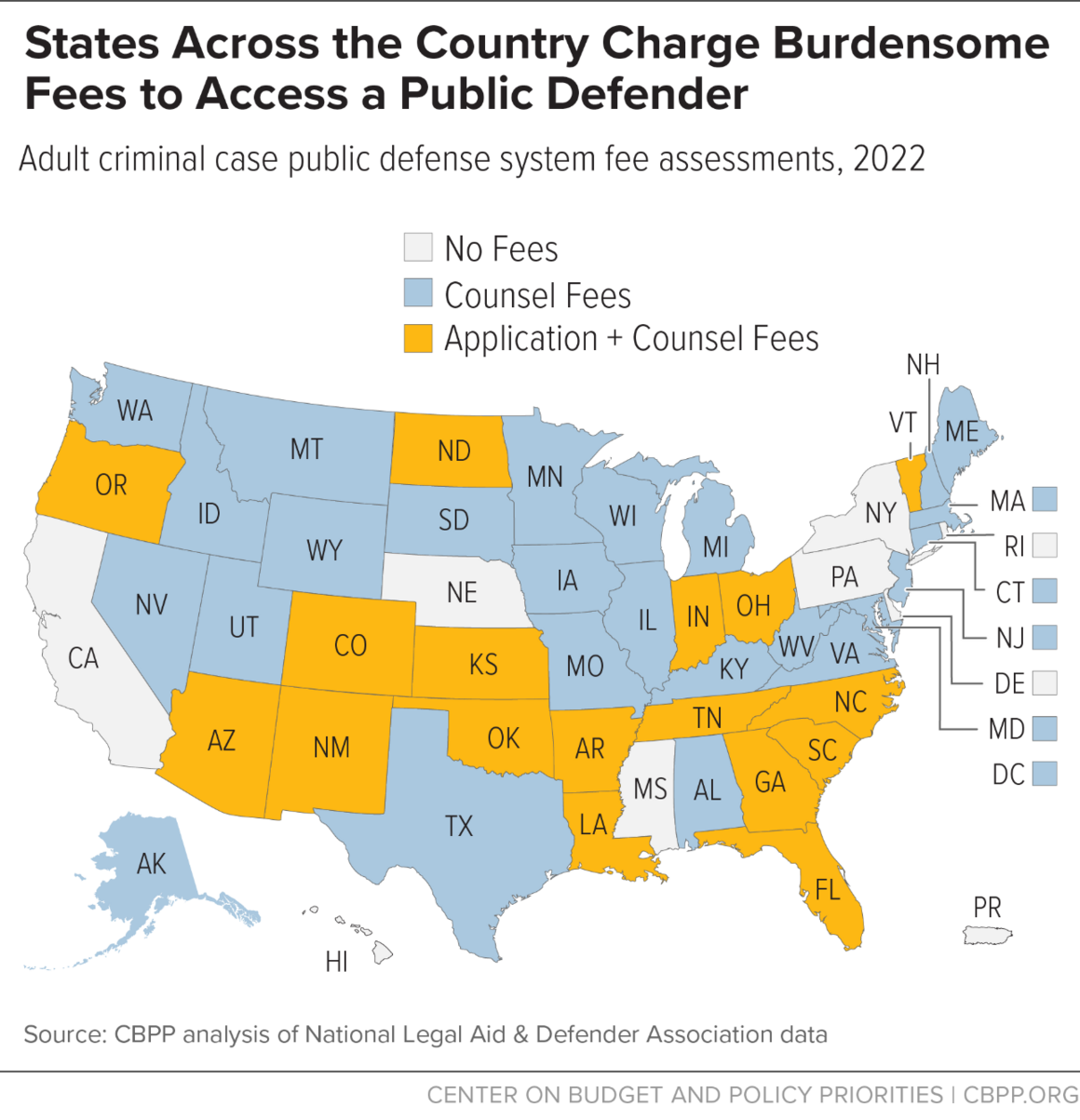BEYOND THE NUMBERS
As New Jersey’s Governor Proposes Eliminating Fees for State Public Defenders, Other States Should Follow Suit
Our country’s criminal legal system should work for everyone regardless of income, race, or other identities. In his fiscal year 2024 budget proposal, New Jersey Governor Phil Murphy included new funding that would move the state closer to this vision by eliminating fees levied on people with low incomes who receive counsel from a state public defender. Public defender fees are just one of a constellation of burdensome criminal legal fees that undermine just outcomes and create ongoing financial hardship for people with low incomes who interact with the legal system.
Lawmakers across the country should follow New Jersey’s lead by eliminating counterproductive public defender fees and appropriating money from their general funds to make up the difference.
The Sixth Amendment protects an individual’s right to legal counsel in criminal cases. For those who are unable to afford it on their own, Supreme Court precedent has held that the government must make counsel available. However, there is no guarantee that this counsel will be affordable, and in practice, states impose potentially onerous fees and back-end charges that undermine the integrity of our criminal legal system and overburden those least able to pay.
New Jersey, for example, currently requires the state’s public defender office to charge defendants at minimum $150 for representation, but costs can snowball quickly thereafter. A trial that lasts up to five days for an adult facing first- or second-degree criminal charges costs $750, with every three days adding another $500 to the bill. Furthermore, in New Jersey, there is no maximum cap on how much a defendant will have to pay, meaning that fees can run into the thousands.
Such costs can have huge implications for defendants navigating the legal system. Some, regardless of the facts of their case, may seek out a plea deal for no reason other than to avoid going to trial and having to pay an overly burdensome bill. Others may be unable to complete their probation until they have paid off their public defender fees. More generally, requiring defendants with low incomes to pay a fee for a public defender may create long-term economic hardship for these individuals and their families. And because Black people are disproportionately represented within the criminal legal system due to long-standing racial injustices and targeted policing in Black communities, such fees have been found to cause disproportionate harm to Black people and predominantly Black communities — widening existing disparities.
These fees are pervasive at the state level. A comprehensive study released in 2022 by the National Legal Aid & Defender Association found that:
- Eighteen states have laws allowing fees to apply for a public defender.
- Forty-two states and the District of Columbia have laws allowing for fees to be assessed on defendants who use a public defender (i.e., counsel fees).
- Thirty states have statutes allowing for payment of public defense system fees to become a condition of probation.
- Twenty-four states allow for some or all of the revenue generated from these fees to fund the public defender system in their state.
While these fees are often overly burdensome for those who must pay, the revenue they generate is small in proportion to state budgets. In New Jersey, one estimate found that anticipated revenue from public defender fees in 2022 accounted for less than a hundredth of 1 percent of the total state budget.
Given this, states should follow New Jersey’s example and eliminate public defender fees — as well as other costly fees associated with the criminal legal system — at both the state and local levels. In states where these funds are used in whole or in part to fund courts or public defenders, state lawmakers can and should appropriate additional dollars from general funds to make up the difference.

